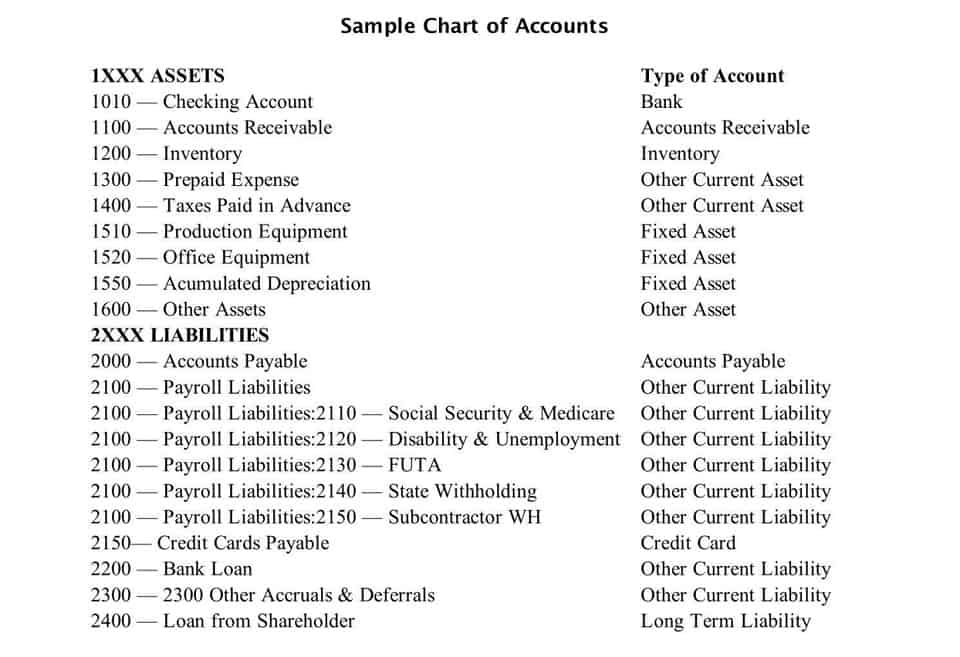
It enables accountants to manage various tasks, such as recording transactions, generating reports, invoicing, and tax preparation, with greater precision and speed. Some popular examples of accounting software include QuickBooks, Xero, and Zoho Books. Cloud-based solutions allow accountants to access and share data in real-time, contributing to a better client experience and improved staff collaboration. Revenues and expenses are accounted for and reported on the income statement, resulting in the determination of net income at the bottom of the statement. Assets, liabilities, and equity accounts are reported on the balance sheet, which utilizes financial accounting to report ownership of the company’s future economic benefits. Accounting standards are a set of guidelines and principles that govern how financial statements are prepared and presented.
Company

In addition to this financial overview, proper accounting practices prepare your business to file taxes and produce financial statements needed for potential investors or business loan applications. The accounting standards are important because they allow all stakeholders and shareholders to easily understand and interpret the reported financial statements from year to year. Recording pertains to writing down or keeping records of business transactions.
What are accounting standards?
Essentially, bookkeeping serves as the foundation, while Accounting uses that foundation to provide strategic guidance and ensure financial transparency. Both functions are vital, but their roles and purposes differ significantly. While bookkeeping focuses on the methodical recording of financial transactions, Accounting goes beyond to interpret, analyse, and summarise these records. Bookkeeping tasks include maintaining ledgers, recording sales, and reconciling bank statements, which lay the groundwork for accurate Accounting. Accounting requires meticulous record-keeping and financial transaction tracking year-round.
- Managerial accounting is very important in the decision-making process.
- By adhering to these standards, businesses build trust with investors and maintain their credibility in the marketplace.
- Meanwhile, fluctuations in retained earnings reflect the company’s net income performance and dividend decisions.
- Manufacturing businesses purchase goods and use them to make new products that are to be sold.
- However, major accounting firms, such as Deloitte, Ernst & Young, KPMG and PwC are renowned for tracking and managing public and private financial data.
What are the Characteristics of Management Accounting?
- The corporate structure allows shareholders to own a percentage of the business with maintaining limited liability protection.
- Tax accounting involves the preparation of tax returns, and auditing involves the examination of financial statements to ensure their accuracy.
- Accountants may be tasked with recording specific transactions or working with specific sets of information.
- Previously, she was an editor at Fundera, where she developed service-driven content on topics such as business lending, software and insurance.
- Alternatively, it can choose to group revenue by car type (i.e., compact vs. truck) or geography.
- Get free guides, articles, tools and calculators to help you navigate the financial side of your business with ease.
- It’s the perfect report to review to make sure you have the cash available to tend to your debts and plan future payments.
There are several types of accounting, such as financial, managerial, and cost. That’s why accurate reporting and regular reconciliation are non-negotiable. ledger account You need to make sure that your equity accounts align with the financial reality of the business.

Internal and External Users
In conclusion, accounting plays a critical role in business decision making. Accounting information provides valuable insights into the financial health of a company, which helps managers make informed decisions about the future of the business. Managers use financial reports to evaluate the performance of the company, identify areas that need improvement, and develop strategies to increase revenue, reduce costs, and improve profitability. Accounting information is also used for future planning and risk assessment, which helps managers make informed decisions about the future of the company. Financial statements https://www.bookstime.com/ are a crucial aspect of accounting that provide a snapshot of a company’s financial health.
- To help, we’ll detail what you need to know about the basics of accounting.
- Growth stocks, for example, would be expected to rapidly grow their sales, whereas defensive income stocks would be expected to report steady revenues.
- A deep analysis of your business’ finances can help you grow and plan for the future.
- It extracts only items that impact cash, allowing for the clearest possible picture of how money is being used, which can be somewhat cloudy if the business is using accrual accounting.
- Understanding the basics of accounting and its history can help business owners make informed decisions and ensure their financial statements are consistent and transparent.
- These financial relationships support our content but do not dictate our recommendations.
- Tax accountants minimize tax liability and keep you compliant with the IRS.
In addition, the format of the report is stipulated by governing bodies. The end result is a financial report that communicates the amount of revenue recognized in a given period. The purpose of accounting is to provide financial information that is useful in making business decisions. This includes information about a business’s financial performance, cash flow, and financial position. Financial reporting is an essential aspect of accounting that involves the preparation and presentation of financial reports to accounting definition in business various stakeholders. These stakeholders include investors, creditors, shareholders, lenders, customers, and employees.
- Experience a day in the life of a tax accountant at one of the top firms in the world with this free job simulation from KPMG.
- Tax accounting focuses on ensuring compliance with tax laws and regulations and accurately calculating and reporting an entity’s income tax obligations.
- To help manage your business finances, we’ll explain accounting types, tasks, and frequently asked questions.
- These are the cumulative profits (or losses) that haven’t been distributed as dividends.
- We are surrounded by business – from managing our own money to seeing profit statements of big corporations.

Our editorial team independently evaluates products based on thousands of hours of research. Identifying, recording, and communicating financial information to end-users is the essence of accounting. The UK Generally Accepted Accounting Principles (UK GAAP) outline specific Accounting standards and principles for businesses operating in the United Kingdom. This systematic approach ensures accuracy and consistency in financial reporting. Christine Aebischer is an former assistant assigning editor on the small-business team at NerdWallet who has covered business and personal finance for nearly a decade.
